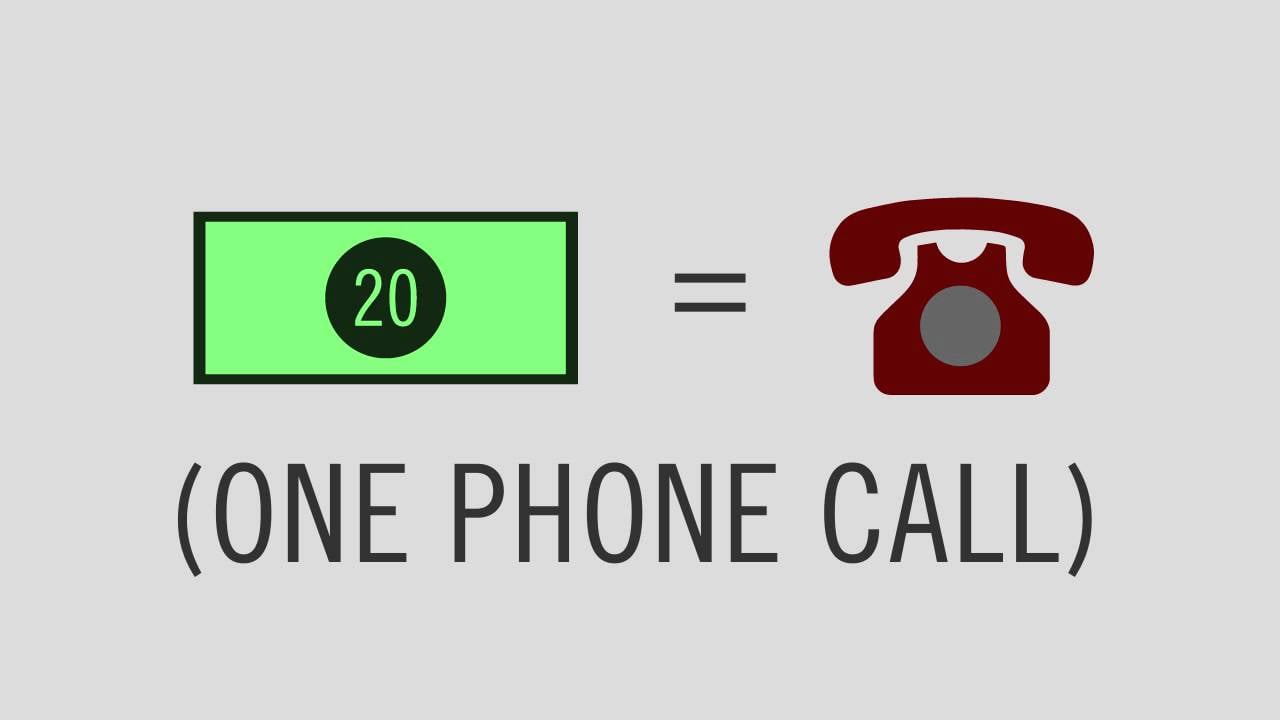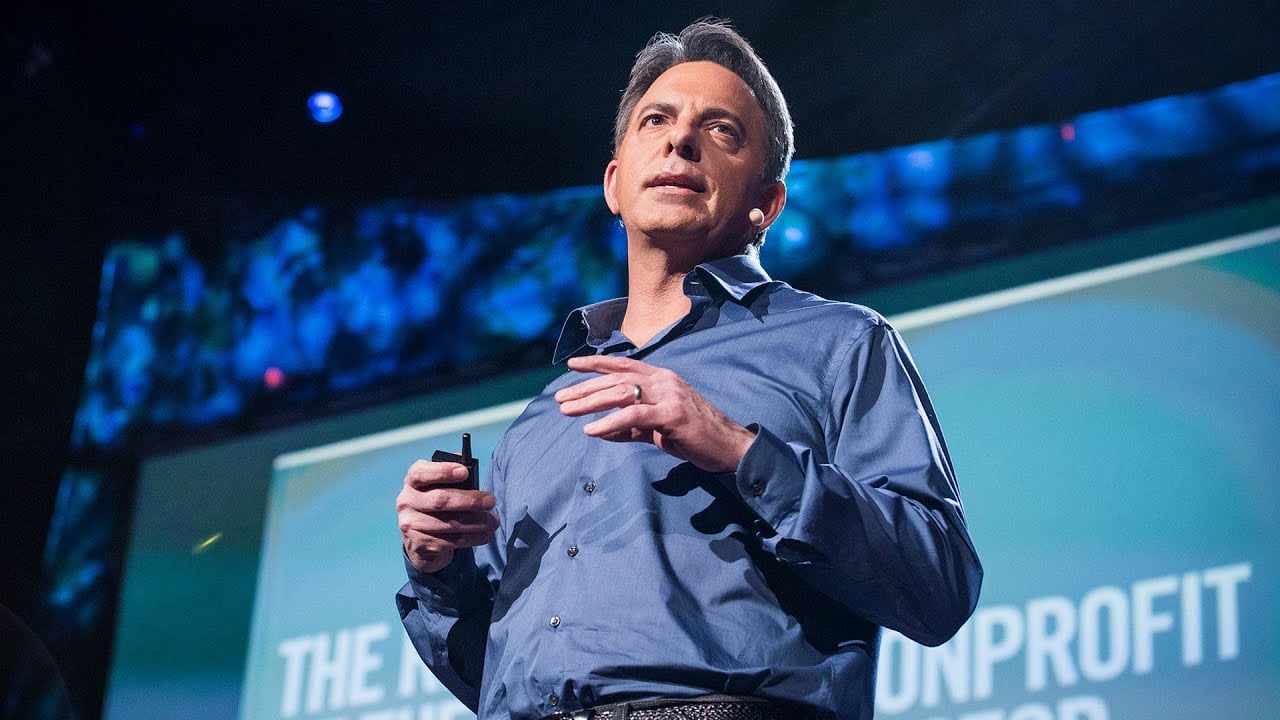9 Best Charities for Stalking Victims (Complete 2025 List)
Affiliate Disclosure
Hey fellow impactful ninja ?
You may have noticed that Impactful Ninja is all about providing helpful information to make a positive impact on the world and society. And that we love to link back to where we found all the information for each of our posts.
Most of these links are informational-based for you to check out their primary sources with one click.
But some of these links are so-called "affiliate links" to products that we recommend.
Why do we add these product links?
First and foremost, because we believe that they add value to you. For example, when we wrote a post about the environmental impact of long showers, we came across an EPA recommendation to use WaterSense showerheads. So we linked to where you can find them. Or, for many of our posts, we also link to our favorite books on that topic so that you can get a much more holistic overview than one single blog post could provide.
And when there is an affiliate program for these products, we sign up for it. For example, as Amazon Associates, we earn from qualifying purchases.
What do these affiliate links mean for you?
First, and most importantly, we still only recommend products that we believe add value for you.
When you buy something through one of our affiliate links, we may earn a small commission - but at no additional costs to you.
And when you buy something through a link that is not an affiliate link, we won’t receive any commission but we’ll still be happy to have helped you.
What do these affiliate links mean for us?
When we find products that we believe add value to you and the seller has an affiliate program, we sign up for it.
When you buy something through one of our affiliate links, we may earn a small commission (at no extra costs to you).
And at this point in time, all money is reinvested in sharing the most helpful content with you. This includes all operating costs for running this site and the content creation itself.
What does this mean for me personally?
You may have noticed by the way Impactful Ninja is operated that money is not the driving factor behind it. It is a passion project of mine and I love to share helpful information with you to make a positive impact on the world and society. However, it's a project in that I invest a lot of time and also quite some money.
Eventually, my dream is to one day turn this passion project into my full-time job and provide even more helpful information. But that's still a long time to go.
Stay impactful,
In the US alone, roughly 13.5 million people are victims of stalking each year, often leading to severe mental health conditions like anxiety, depression, and PTSD. Moreover, stalking is commonly a precursor to violence, with almost half of victims experiencing violence at the hands of their stalker. Yet, many victims do not receive justice due to inadequate laws, lack of awareness, and the difficulty of proving stalking behaviors. So we had to ask: What are the best charities for stalking victims?
The best charities for stalking victims are AEquitas and the Suzy Lamplugh Trust. Charities such as The Anxiety and Depression Association of America and the Trauma Institute and Child Trauma Institute focus on mental healing support for stalking victims.
Whether you want to help an abused mother build a new life for herself and her children, ensure professionals have the tools to best support stalking victims, or advocate for stronger anti-stalking laws, there is a charity for you. Keep reading to learn more about what the best charities that support stalking victims are all about, how they work, and what your best way would be to contribute.
Here’s What All the Best Charities for Stalking Victims Have in Common
The charities on this list were chosen based on their mission, impact, transparency ratings, and achievements.
They operate primarily throughout the US and Canada, but some support stalking victims internationally.
Many of these charities provide direct counseling services to those suffering from stalking-related post-traumatic stress disorder, while others work to prevent stalking by promoting personal safety. Some cater to specific populations like women escaping domestic violence. Others support anyone who has experienced stalking.
Some of the charities below focus on providing professional development to ensure that practitioners are up to date with the latest evidence-based treatments, while others focus on advocacy and policy change.
Yet, they all share the same goal of supporting stalking victims.
These Are the 9 Best Charities for Stalking Victims in 2025
Below are our favorite charities for stalking victims (you can click on their link to directly jump to their section in this article):
Best Charities for Stalking Victims
(At the end of this article we’ll also share our six-step approach on how you can select the best charity to support.)
AEquitas: Advancing Justice for Stalking Victims

🔎
Their transparency & ratings:
AEquitas holds a 4-star rating from Charity Navigator and the Platinum Seal of Transparency from GuideStar.
“Empowering justice, advancing equality.”
AEquitas
⚒️
What they do:
AEquitas provides critical training, resources, and support to legal professionals and law enforcement agencies to enhance their ability to prosecute stalking cases. For example, their SPARC initiative includes specialized training programs that cover investigative techniques, victim-centered approaches, and trauma-informed care. As another example, the SPARC initiative raises public awareness about stalking and supports improved policies and practices to protect victims and hold offenders accountable. Furthermore, their technical assistance and consultation services ensure that practitioners have the knowledge and tools needed to achieve just outcomes for victims.
🚀
What they’ve achieved:
Since their founding, AEquitas has made significant strides in advancing justice for victims of gender-based violence, including stalking. For example, they have provided more than 1,900 trainings, helping over 137,000 professionals learn how to more effectively achieve justice for victims. Furthermore, the organization has been instrumental in raising public awareness about the complexities of stalking and advocating for stronger legal protections for victims.
✨
Ways to contribute:
You can donate directly to AEquitas through their website. You can also support the organization’s mission by participating in SPARC’s activities for National Stalking Awareness Month, or volunteering.
The Suzy Lamplugh Trust: A Legacy of Victim Support
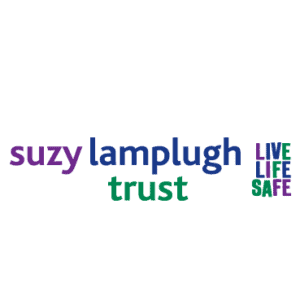
🔎
Their transparency & ratings:
According to their financial report, The Suzy Lamplugh Trust spent 98% of their expenditure on charitable activities and 2% on fundraising.
“Live life safe.”
The Suzy Lamplugh Trust
⚒️
What they do:
The Suzy Lamplugh Trust offers a range of services to enhance personal safety and support victims of crime, including stalking. For example, their National Stalking Helpline provides confidential advice and support to individuals affected by stalking and they provide training and educational courses on stalking prevention for professionals to better assist victims. Moreover, they offer a range of resources for personal safety advice, including personal safety at work, at home, and while using public transportation. Furthermore, the organization campaigns for better safety measures and policies to protect individuals from violent crime.
🚀
What they’ve achieved:
Since their inception, The Suzy Lamplugh Trust has become the UK’s leading personal safety organization and authority on stalking. To date, they have trained over 1 million professionals and individuals to better understand and prevent stalking, and have supported over 75,000 people through their National Stalking Helpline since 2010. Furthermore, their advocacy efforts have led to increased awareness and policy improvements regarding personal safety and crime prevention, including the Protections of Freedom Act, which included specific offenses for stalking.
✨
Ways to contribute:
You can donate to The Suzy Lamplugh Trust through their website. You can also support the organization by creating your own fundraiser or spreading awareness.
The Anxiety and Depression Association of America: Mental Health After Stalking

🔎
Their transparency & ratings:
The Anxiety and Depression Association of America holds a 4-star rating from Charity Navigator.
“Triumphing through science, treatment, and education.”
Anxiety and Depression Association of America
⚒️
What they do:
The Anxiety and Depression Association of America helps people overcome mental health disorders, including those brought on or exacerbated by stalking, through educational resources, professional practice, and research. For example, their educational resources help people better understand the causes, symptoms, and available treatments for anxiety and other mental health disorders. Furthermore, they advance mental health treatment by supporting research to develop better treatments and potential cures. Moreover, their free Peer-to-Peer Support Communities allow affected individuals to connect and share their experiences.
🚀
What they’ve achieved:
Since their founding, the Anxiety and Depression Association of America has impacted the lives of millions of people living with mental health disorders, including those brought on by stalking. For example, their website supports over 5.5 million users each year. Furthermore, in 2023, their Peer-to-Peer Support Communities connected more than 87,500 people from around the world.
✨
Ways to contribute:
You can donate directly to the Anxiety and Depression Association of America through their website. You can also contribute by shopping in one of the online stores. In addition, you are encouraged to share your own story of triumphing over anxiety.
Trauma Institute and Child Trauma Institute: Professional Development to Maximize Healing
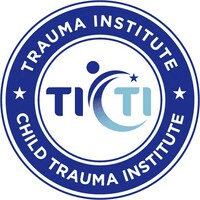
🔎
Their transparency & ratings:
The Trauma Institute and Child Trauma Institute holds a 4-star rating from Charity Navigator.
“Get your life back.”
The Trauma Institute and Child Trauma Institute
⚒️
What they do:
The Trauma Institute and Child Trauma Institute supports stalking victims by equipping clinicians, researchers, and other stakeholders with the most innovative information and resources to help their clients heal. For example, their Trauma Therapy training offers providers continuing education courses in research-based treatment approaches, like EMDR and Progressive Counting. They also offer certification packages to help practitioners enhance their knowledge of treatment approaches, as well as consultation services to ensure accurate implementation. Moreover, they provide Intensive Therapy retreats, where participants spend full, consecutive days working through their trauma with a professional.
🚀
What they’ve achieved:
Since their founding, the Trauma Institute and Child Trauma Institute has helped thousands of mental health practitioners in over 20 countries around the world enhance their ability to serve trauma victims, including those who have experienced stalking. For example, in 2022, they presented 46 teaching and training events, reaching almost 2,000 mental health professionals. In the same year, they provided 171 Intensive Therapy retreats, 70 of which were provided at no cost thanks to their Victims of Crime grant-funded program.
✨
Ways to contribute:
You can donate to the Trauma Institute and Child Trauma Institute via their website. You can also support the organization’s mission by utilizing their educational resources or subscribing to their blog.
National Domestic Violence Hotline: Always On Call
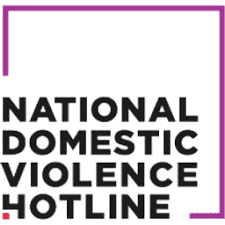
🔎
Their transparency & ratings:
The National Domestic Violence Hotline holds a 4-star rating from Charity Navigator and the Gold Seal of Transparency from GuideStar.
“Hope is on the line.”
National Domestic Violence Hotline
⚒️
What they do:
The National Domestic Violence Hotline empowers victims of abuse, including stalking, through their crisis intervention, prevention, and advocacy programs. For example, victims can reach out to their Hotline 24/7 via phone call, text message, or online chat and speak with an advocate who can help them navigate a path to safety. Additionally, the organization provides educational materials to help stalking victims better understand and overcome their experiences, such as identifying stalking, interpreting local laws, and creating a safety plan. They also provide resources specifically for male victims of domestic abuse and stalking, like overcoming gender stereotypes to recognize and report abuse.
🚀
What they’ve achieved:
Since their inception, the National Domestic Violence Hotline has answered more than 7 million calls, texts, and chats from victims trying to escape abuse, including stalking. For example, in 2023, they received almost 930,000 calls, texts, and chats and served almost 160,000 through their online provider and resource directory. In the same year, over 6 million people accessed their website and an additional 2.7 million visited their Love is Respect website.
✨
Ways to contribute:
You can donate to the National Domestic Violence Hotline and Love is Respect via their websites. You can also support the organization’s mission by spreading their message or learning how to support a victim.
National Center for Victims of Crime: Ongoing Support for Victims
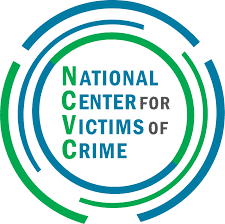
🔎
Their transparency & ratings:
The National Center for Victims of Crime holds a 3-star rating from Charity Navigator.
“Empowering victims, restoring hope.”
National Center for Victims of Crime
⚒️
What they do:
The National Center for Victims of Crime provides services specifically designed to support stalking victims and their families. For example, their Victim Connect Resource Center offers confidential support and information tailored to stalking-related issues and legal advice services to help victims navigate the justice system. Furthermore, the organization engages in advocacy efforts to improve laws and policies to better protect and support stalking victims. And, the center conducts specialized training programs for professionals in the criminal justice and victim services fields, ensuring they have the tools and knowledge necessary to assist stalking victims effectively.
🚀
What they’ve achieved:
Since their founding, the National Center for Victims of Crime has become the leading resource and advocacy organization in the US, supporting victims of all types of crime, including stalking. For example, in 2023, the organization’s helpline assisted over 21,500 victims by providing critical support and guidance. And, in the same year, they received over $5.3 million in grant funding to enhance and expand existing programs, including making the hotline available to callers 24/7.
✨
Ways to contribute:
You can donate to the National Center for Victims of Crime via their website. You can also support the organization’s mission by subscribing to their newsletter or joining their volunteer program.
Futures Without Violence: Bold Action for a Safer World
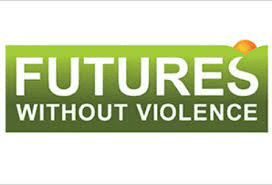
🔎
Their transparency & ratings:
Futures Without Violence holds a 4-star rating from Charity Navigator and the Gold Seal of Transparency from GuideStar.
“More than a mission, a movement.”
Futures Without Violence
⚒️
What they do:
Futures Without Violence supports healing for abuse victims, including stalking, and promotes a violence-free future through their groundbreaking programs, policy development, and public action campaigns. For example, their resources open up conversation across a variety of settings, such as the workplace and schools. They also operate programs that engage men to end abuse, including stalking, against women and children, and dismantle toxic masculinity culture through initiatives such as Coaching Boys Into Men and #TeachEarly. And, they run the National Health Initiative on Violence and Abuse, a health program that works to advance equitable healthcare and supportive services for victims.
🚀
What they’ve achieved:
Since their founding, Futures Without Violence has engaged millions of men, women, and children to end abuse, including stalking, and create a safer future for families and communities. For example, in 2023 alone, their advocacy efforts helped unlock more than $2 billion for programs that prevent violence, provide economic support, and help survivors heal. In the same year, their work impacted people in over 40 states across the US, and organizations in 10 different countries operated programs modeled after their approaches.
✨
Ways to contribute:
You can donate to Futures Without Violence via their website. You can also support the organization’s mission by sharing their Public Service Announcements on your social media or joining their email list.
House of Ruth: Empowering Survivors of Domestic Abuse
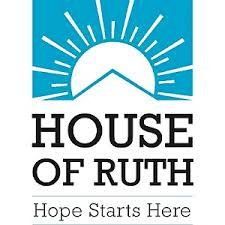
🔎
Their transparency & ratings:
House of Ruth holds a 4-star rating from Charity Navigator and the Platinum Seal of Transparency from GuideStar.
“Hope starts here.”
House of Ruth
⚒️
What they do:
House of Ruth supports victims of domestic violence, including stalking, through programs and services that support both short-term and long-term healing. For example, they offer transitional housing programs that help survivors rebuild their lives, providing access to comprehensive supportive services, such as counseling, legal advocacy, and case management. Furthermore, their KidSpace program is a nationally accredited child development center that supports children who have experienced or witnessed domestic violence; the program provides individualized learning and care plans, with well-trained teachers in bright, engaging classrooms, to help each child reach their highest potential.
🚀
What they’ve achieved:
Since their founding, the House of Ruth has empowered thousands of traumatized women and children to escape abusive situations, including stalking. For example, in 2023 alone, they provided safe and stable housing to 546 women and their children and also served 139 children through Kidspace. And, in the same year, the Domestic Violence Support Center provided over 1,575 hours of free counseling to 378 survivors.
✨
Ways to contribute:
You can donate to House of Ruth through their website. You can also support the organization by volunteering or making an in-kind donation.
Mental Health America: Action Before Crisis
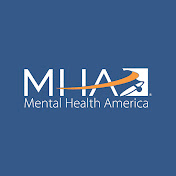
🔎
Their transparency & ratings:
Mental Health America holds a 4-star rating from Charity Navigator and the Platinum Seal of Transparency from GuideStar.
“Crisis is not a starting point.”
Mental Health America
⚒️
What they do:
Mental Health America supports trauma victims, including those who have experienced stalking, through advocacy, education, research, and integrative services. They provide comprehensive resources on trauma to help those suffering and their loved ones navigate relevant mental health challenges, from diagnosis to treatment and beyond. For example, their MHA Screening test for post-traumatic stress disorder, allows people to learn more about their conditions, connect with peer support, and find a local treatment provider. They also offer tools to help with everyday challenges, like changing negative thoughts using AI-generated positivity and optimizing your home environment to promote mental wellness.
🚀
What they’ve achieved:
Since their founding, Mental Health America has educated millions of people about mental illnesses, including those impacting victims of trauma due to stalking. For example, their MHA Screening tool has helped more than 40 million people gain insight into their mental health, with 6.5 million people screened in 2023 alone. And, in the same year, over 3.5 million people accessed their educational materials, and more than 85,000 utilized the organization’s DIY tools.
✨
Ways to contribute:
You can donate to Mental Health America via their website. You can also get involved by joining their advocacy movement or creating your own fundraiser.
How Can You Select the Best Charities to Support?
The charities on the list are, we deem, the best charities for stalking victims. However, you may have a particular charity you want to support. Let’s look at what you can do to ensure your contribution has the most significant impact.
- Check out the charity website. Charities that are worthy of your donations are transparent in their mission and their figures. Familiarize yourself with their history, mission, and values. Their website usually is the best place to start.
- Identify the charity’s mission. Without a goal, the charity is likely to fail. If the charity’s mission isn’t clear, it’s probably worth looking for a charity that does have a clear mission.
- Check if the charity has measurable goals. An effective charity has clear goals. You want to know your donation will help the charity reach its goals. But if it doesn’t have targets, it’s likely to fail or squander your gift. The charity should be able to account for its spending and supply evidence of the work they do.
- Assess the successes or goals the charity has achieved. You wouldn’t invest in a business if it kept missing its targets. In the same way, charities are like this too. If no one is assessing a charity’s progress in reaching its targets, the chances are they’re not making a substantial positive change.
- Check the charity’s financials and stats. Trustworthy organizations will publish financial statements and reports each year. Some might be exempt from having to do so, but they should be able to provide them to public members who are interested in donating.
- Locate sources who work with or benefit from the charity. Word of mouth and first-hand experience of a charity’s work lets you know the charity’s quality. If you’re able to do so, check out the charity for yourself or speak to someone familiar with it. This way, your donation will go to the right place.
How Can You Best Support These Charities?
After you’ve made your decision, it’s time for you to decide on how you’d like to help the charities you’ve chosen. Check how you can help – each charity runs specific programs that have unique aims. Find out what the aim of such programs is and whether they are right for you.
Here are a few ways you can help your chosen charity:
- Donate money. You can find donation pages on the websites of most charities. Your donation can be a one-time payment, or you can set it to be deducted regularly at different intervals. You can mostly pay via credit card, but some charities also take PayPal or Bitcoin payments.
- Buy their official merchandise. Charities can also raise money by selling merchandise. So, you can support them by buying the mugs, shirts, caps, pens, pencils, and any other such items they may be selling. Ideally, you should buy as much as you can to share and spread the word about the charity’s activities.
- Engage in volunteer work. As you’ve seen from our descriptions above, some charities engage in a lot of local and grassroots programs. You can help by taking on and organizing the program in your local area.
- Help their fundraising efforts. You can spread the word about the charity in your workplace, school, church, etc., and hold creative fundraising drives on social media or offline within your small circles.
- Share their stories. Most charities have compelling stories that you can share with your audience to attract more people to the cause.
Final Thoughts
Now it is up to you to select the charity that resonates most with you. And whichever charity you end up choosing and contributing to, we are sure that they will immensely appreciate your support. Hopefully, the information within this article has made this selection process a bit easier for you to support charities dedicated to stalking victims—based on the causes that matter most to you.
Stay impactful,

PS: Finally, I want to leave you with a thought-provoking TED talk from Dan Pallotta, a leading philanthropic activist and fundraiser, about what is wrong with the way we think about charities – and what we can do about it:
Sources
- SPARC: Stalking Fact Sheet
- Florida Department of Children and Families: Stalking Fact Sheet
- AEquitas: Home
- Charity Navigator: AEquitas
- GuideStar: AEquitas
- SPARC: Home
- SPARC: National Stalking Awareness Month
- SPARC: Just Tech
- AEquitas: Consultations
- AEquitas: Home
- AEquitas: Stalking Legislation
- AEquitas: Donate
- SPARC: Get Involved
- The Suzy Lamplugh Trust: Home
- The Suzy Lamplugh Trust: Financial Report
- The Suzy Lamplugh Trust: Helpline
- The Suzy Lamplugh Trust: Stalking Awareness
- The Suzy Lamplugh Trust: Policy and Campaigns
- The Suzy Lamplugh Trust: What We Do
- The Suzy Lamplugh Trust: 2023 Impact Report
- The Suzy Lamplugh Trust: Donate
- The Suzy Lamplugh Trust: Fundraise
- The Suzy Lamplugh Trust: Policy and Campaigns
- Anxiety and Depression Association of America: Anxiety Facts and Statistics
- Anxiety and Depression Association of America: Home
- Charity Navigator: Anxiety and Depression Association of America
- GuideStar: Anxiety and Depression Association of America
- Anxiety and Depression Association of America: Understanding Anxiety
- Anxiety and Depression Association of America: 2023 Annual Report
- Anxiety and Depression Association of America: Support Groups
- Anxiety and Depression Association of America: Triumph Newsletter
- Anxiety and Depression Association of America: Find a Therapist
- Anxiety and Depression Association of America: Donate
- Anxiety and Depression Association of America: Shop Online
- Anxiety and Depression Association of America: Share your Story
- Trauma Institute and Child Trauma Institute: Home
- Charity Navigator: Trauma Institute and Child Trauma Institute
- Trauma Institute and Child Trauma Institute: Training
- Trauma Institute and Child Trauma Institute: EDMR
- Trauma Institute and Child Trauma Institute: Progressive Counting
- Trauma Institute and Child Trauma Institute: Certification Overview
- Trauma Institute and Child Trauma Institute: Consultation
- Trauma Institute and Child Trauma Institute: Intensive Trauma Therapy
- Trauma Institute and Child Trauma Institute: About Us
- Trauma Institute and Child Trauma Institute: 2022 Annual Report
- Trauma Institute and Child Trauma Institute: Crime Victims Grant
- Trauma Institute and Child Trauma Institute: Donate
- Trauma Institute and Child Trauma Institute: Resources
- Trauma Institute and Child Trauma Institute: Blog
- National Domestic Violence Hotline: Home
- National Domestic Violence Hotline: History of the Hotline
- Charity Navigator: National Domestic Violence Hotline
- National Domestic Violence Hotline: GuideStar: National Domestic Violence Hotline
- National Domestic Violence Hotline: Get Help
- National Domestic Violence Hotline: Stalking Safety Planning
- National Domestic Violence Hotline: Male Victims of Abuse
- National Domestic Violence Hotline: Donate
- Love is Respect: Donate
- National Domestic Violence Hotline: Download and Request Materials
- National Domestic Violence Hotline: Support Others
- National Center for Victims of Crime: Home
- Charity Navigator: National Center for Victims of Crime
- National Center for Victims of Crime: Victim Connect
- National Center for Victims of Crime: Victims Policy Institute
- National Center for Victims of Crime: Center for Victim Service Professionals
- National Center for Victims of Crime: Our History
- National Center for Victims of Crime: 2023 Annual Report
- National Center for Victims of Crime: Donate
- National Center for Victims of Crime: Newsletter Signup
- National Center for Victims of Crime: Volunteer Program
- Futures Without Violence: Home
- Charity Navigator: Futures Without Violence
- GuideStar: Futures Without Violence
- Futures Without Violence: Coaching Boys Into Men
- Futures Without Violence: The Y Factor
- Futures Without Violence: Teach Early
- Futures Without Violence: Workplace
- Futures Without Violence: Campus
- Futures Without Violence: Stalking and Human Trafficking
- Futures Without Violence: Bridges to Better
- Futures Without Violence: Promising Futures
- Futures Without Violence: Health
- Futures Without Violence: 2023 Impact Report
- Futures Without Violence: Donate
- Futures Without Violence: Public Service Announcements
- Futures Without Violence: Sign Up
- House of Ruth: Home
- Charity Navigator: House of Ruth
- GuideStar: House of Ruth
- House of Ruth: Housing Services
- House of Ruth: Counseling Services
- House of Ruth: Kidspace
- House of Ruth: 2023 Annual Report
- House of Ruth: Donate
- House of Ruth: Volunteer
- House of Ruth: In-Kind Donations
- Mental Health America: Home
- Mental Health America: Who We Are.
- Charity Navigator: Mental Health America
- GuideStar: Mental Health America
- Mental Health America: Trauma
- Mental Health America: MHA Screening: PTSD
- Mental Health America: PTSD
- Mental Health America: Resources
- Mental Health America: Get Help
- Mental Health America: Screening
- Mental Health America: Changing Negative Thoughts
- Mental Health America: Our History
- Mental Health America: Optimizing Your Space
- Mental Health America: Radical Self Acceptance
- Mental Health America: 2023 Annual Report
- Mental Health America: Donate Now
- Mental Health America: Advocacy Network
- Mental Health America: Fundraise





